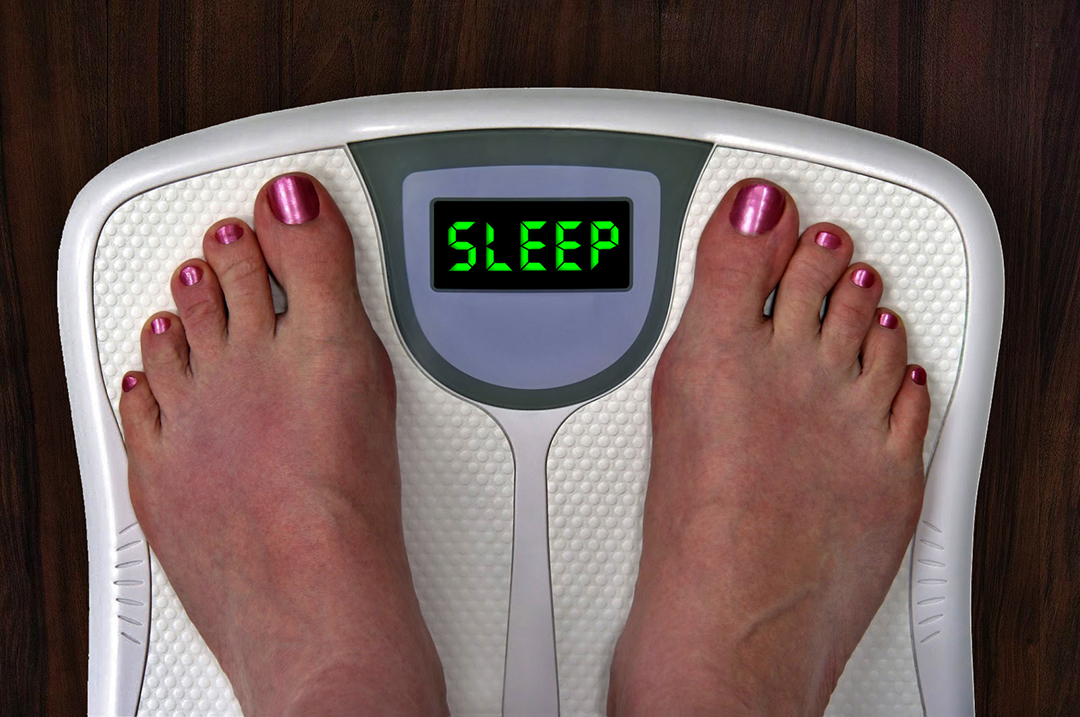Sleep deprivation can sabotage your health. There are so many vital parts of a healthy lifestyle that require a good night’s sleep. Sleep loss can affect your cognitive reasoning, your work efficiency, and your emotional stability. But, can sleep loss even make you gain weight?
A lack of sleep can affect so many parts of your life, and many of those parts of your life depend on each other to function efficiently.
Sleep loss and increasing weight gain can be due to physical changes and reactions in your body, but can just as much be the result of negative psychological effects. All of these can be very harmful to your health, your stability, and even your waistline.
Metabolism
Our metabolism regulates and manages energy production and hormone release. These are critical to maintaining a fit body and a slim figure.
Research has suggested that neglecting and restricting sleep can lead to negative alterations in metabolism. Metabolism involves two processes that allow the body to regulate energy production.
One process builds up molecules and breaks them down. While in the first stages of sleep, non-REM sleep, metabolic rates and brain temperature are reduced to help manage and repair wear and tear that can build up during the day.
Two key metabolic functions are hormone regulation and the storage of food energy. In a study from the University of Chicago Medical Center, it was found that people deprived of healthy sleep (four hours instead of eight) took 40% longer to achieve normal blood sugar levels after eating a high carbohydrate meal.
Insulin response was decreased by 30%. Long term experience with these effects on the body can lead to type 2 diabetes.
Appetite
Sleep can greatly change your appetite. Without healthy sleep hours, your body will lack energy and crave it from food, specifically, more carbohydrates and more fat.
The hormones leptin and ghrelin are very important to appetite control. Leptin suppresses appetite and encourages the body to expend energy.
Deprivation of sleep reduces leptin production and can encourage both overeating and your daily energy expenditure. Ghrelin functions in the opposite manner. This hormone is released in the stomach and increases appetite and reduces energy expenditure.
SleepJunkie points out that sleep loss also increases the likelihood of calories being consumed at night. This combined with reduced insulin response and increased insulin resistance can really pack on the pounds quickly, if persistent.
Emotional Eating
The misregulation of appetite hormones can trigger cravings of fat, salt, and sugar. Eating more, and consuming less healthy options that your body is craving can lead to reduced productivity and stress, as well as stress from weight gain.
Increased stress can make it even harder to get a good night’s rest that your body needs. The cycle continues and grows.
If you lack sleep, you are physiologically predisposed to disregard a deliberate, considered response to emotional stress, and instead, react emotionally. If you have ever eaten as a comfort response to stress, then sleep deprivation is going to exacerbate this.
Sleep deprivation can spike cortisol levels as well. This is only driven higher by cycles generating more and more emotional distress. Cortisol is a defense hormone that triggers the body conserving energy. More stress means your body is going to try to hold on to that fat for protection.
Scheduling And Time Management
You wake up after achieving only four hours of sleep. You drink 3 cups of coffee and still work less efficiently at your job and decide to work through lunch hour to catch up. Your body is crashing so you grab quick snacks like coffee and other caffeine, chips, candy bars, etc.
Your body energy is now depleted and you have no energy to go to the gym, or even make a healthy meal at home, so you order a pizza and sit on the couch. Now you’re trying to sleep again but you’re too amped up, full of caffeine, and stressed about the day to relax.
This is a routine that can be very easy to settle into and very difficult to get out of. Sleeplessness stresses your body physically and emotionally. Comfort eating is a natural response with physiological causes.
The immediate results of this kind of eating can be a temporary boost in energy, however, the long term effects can lead to obesity and continue to intensify sleep loss, stress, and emotional instability.
Fatigue And Decision Making
Lack of sleep dulls your brain. Your frontal lobe is weakened and so too are the functions it controls as the center for decision making and impulse control.
When you don’t sleep enough, your body wants to feel good and it wants it now. With weakened impulse control, this can lead to you coming home with a box of donuts and a pint of ice cream for dinner.
Being aware of the effect of healthy sleep on your body is very important to maintaining a healthy weight or to shed those troublesome extra pounds.
Everything in your body is connected, and knowing these connections can keep you on the path to your desired weight, and help you maintain it once you get there. Once any unhealthy cycle is started, it can be very hard to stop.
Figuring out how to manage a healthy night’s sleep can be just as important as diet and exercise in obtaining a healthy body weight, and fitting into your favorite pair of jeans.





